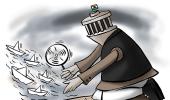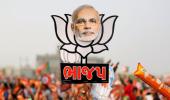The agenda prepared by ministers will be discussed by Prime Minister Narendra Modi and other RCEP leaders in Nonthaburi, a city north of Bangkok, on November 4, the official deadline to close talks.

As negotiations to finalise the long-overdue Regional Comprehensive Economic Partnership (RCEP) enter the final stages, all eyes are on India as to whether it will take the plunge and agree to the world’s largest free-trade agreement (FTA) spanning 16 Asia-Pacific nations.
According to diplomatic sources, except India, all the 15 RCEP member countries are on board in finalising the deal.
While no official statement was released after the ministerial meetings on Friday and Saturday, the pending issues on market access and services trade have not been resolved and continue to hold up an agreement, a source in the know said.
While India might support a formal announcement about the completion of talks with an ‘in-principle’ backing for the deal, it has clarified that it remains unhappy with the current status of offers made in various chapters of discussions, senior officials indicated.
The resulting agenda prepared by the ministers will be discussed by Prime Minister Narendra Modi and other RCEP leaders in Nonthaburi, a city north of Bangkok, on Monday (November 4), the official deadline to close talks. The deadline will now be extended by a ‘couple of months’, they added.
Modi said that addressing India’s concerns over “unsustainable trade deficits” remained important and that opening the vast Indian market must be matched by openings in some areas where Indian businesses could benefit.
“We have put forward reasonable proposals in a clear manner and are engaged in negotiations with sincerity. We would like to see commensurate levels of ambition on services from many of our partners, even as we are ready to address their sensitivities,” Modi said in an interview to the Bangkok Post newspaper.
“Overall, we are clear that a mutually beneficial RCEP, in which all sides gain reasonably, is in the interest of India and of all partners in the negotiation,” he said. The prime minister will attend the 16th Asean-India Summit, the 14th East Asia Summit, and the third summit meeting of RCEP.
India registered a trade deficit with as many as 11 RCEP member nations in 2018-19, with China topping the list.
The annual Asean summit, a grouping of 10 influential countries, is taking place amid China's aggressive behaviour in the disputed South China Sea as well as in the Indo-Pacific region. The grouping will have separate summits with its dialogue partners like India, the US, Japan, Russia and China.
The Asean region along with India comprises a combined population of 1.85 billion people, which is one-fourth of the global population and their combined GDP has been estimated at over $3.8 trillion. Investment from Asean to India has been over $70 billion in the last 17 years, accounting for more than 17 per cent of India's total FDI.
While the Asean summit is likely to focus more on trade and investment-related issues, leaders at the East Asia Summit are expected to delve deep into issues relating to maritime security, terrorism, non-proliferation and migration.
"The East Asia Summit (EAS) is today the leading element in the regional cooperative architecture, as a singular, leaders-led structure that is centred around Asean, and includes as members major countries in the region or with important interests in it. We will be reviewing significant regional and global issues on the Agenda of the EAS, and examining the state of our current programmes and projects," the PM said.
With additional inputs from PTI











 © 2025
© 2025